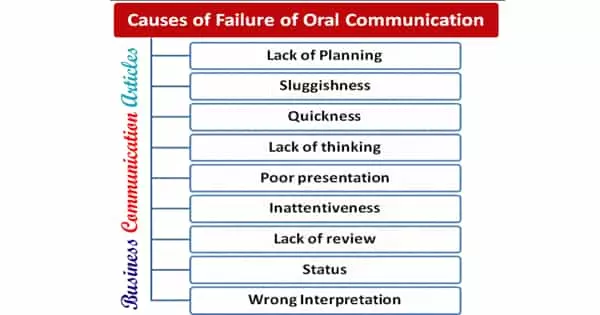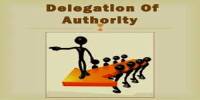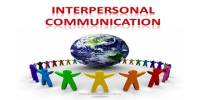Oral communication is the best mode of communication for all purposes, but it can fail for a variety of reasons. It is the most natural communication skill that man develops. However, in some cases, this method of communication is unable to provide the desired benefits due to a variety of causes or reasons.
Oral communication causes misunderstanding, confusion, and factual distortion, which leads to communication breakdown.
The following are the reasons for which oral communication becomes ineffective:
Oral communication creates misunderstanding, confusion, distortion of facts end leads to communication breakdown
- Lack of Planning:
In the case of oral communication, the speaker places more emphasis on the speaking style than on the subject matter planning. If the message of oral communication is not well planned, it will fail to capture the attention of the audience. As a result, the receiver becomes perplexed, and communication fails. As a result, before delivering the oral message, the speaker should make the necessary preparations.
- Sluggishness:
Oral communication can involve any topic that needs to be discussed for a long time. This may necessitate the audience’s inattention. As a result, the goal of communication will fail.
- Quickness:
Oral communication occurs in a short period of time. When a communicator transmits a message or information quickly, the audience may miss some or all of it. Furthermore, there may be quick feedback but without proper thought. Such a thing could disrupt the flow of oral communication.
- Lack of thinking:
When communication is required, we must generally think properly about the entire communication process and its completion. However, in oral communication, we do not have enough time to think deeply. As a result, such communication is ineffective.
- Poor presentation:
The presentation is a necessary component of oral communication. The receiver will be perplexed if the presentation is poor or faulty. Communication can become ineffective when the speaker’s presentation is poor or defective. If the speaker fails to present the information in a pleasant manner, the goal of communication will be defeated.
- Inattentiveness:
Inattention is a major cause of oral communication failure. It is extremely difficult to keep the receiver’s attention for an extended period of time. Both parties should pay close attention to the communication message. Communication between them becomes ineffective if either party is inattentive. Furthermore, feedback necessitates the speaker’s attention. Disruptions in oral communication will result from a lack of concentration.
- Emotion:
Both parties’ emotions may have an impact on the effectiveness of communication. During the speech, the speaker may become emotional, which will interfere with the message’s transmission. Parties may lose control of their emotions during oral communication at times. As a result, the receiver will remain in the dark.
- Lack of review:
There is little opportunity for both the speaker and the listener to evaluate the message in oral communication. The subject of communication necessitates careful examination or evaluation in order to improve future communication. However, due to time constraints, such a review is not possible in oral communication.
- Status:
If the speaker has a higher status, he may be hesitant to communicate with someone of a lower status. In the case of oral communication, the listener is drawn to the speaker’s personality. Such a person may also fail to honor the audience. The listener will not pay attention to the speaker’s message if the speaker lacks personality. Oral communication fails to achieve the goal of communication in this case.
- Wrong Interpretation:
If the receiver misinterprets the topics or subject matter of oral communication, the entire communication process breaks down. Linguistic barriers arise from the use of unfamiliar words, technical terms, jargon, accent differences, and so on. As a result, incorrect interpretation leads to oral communication failure.
















